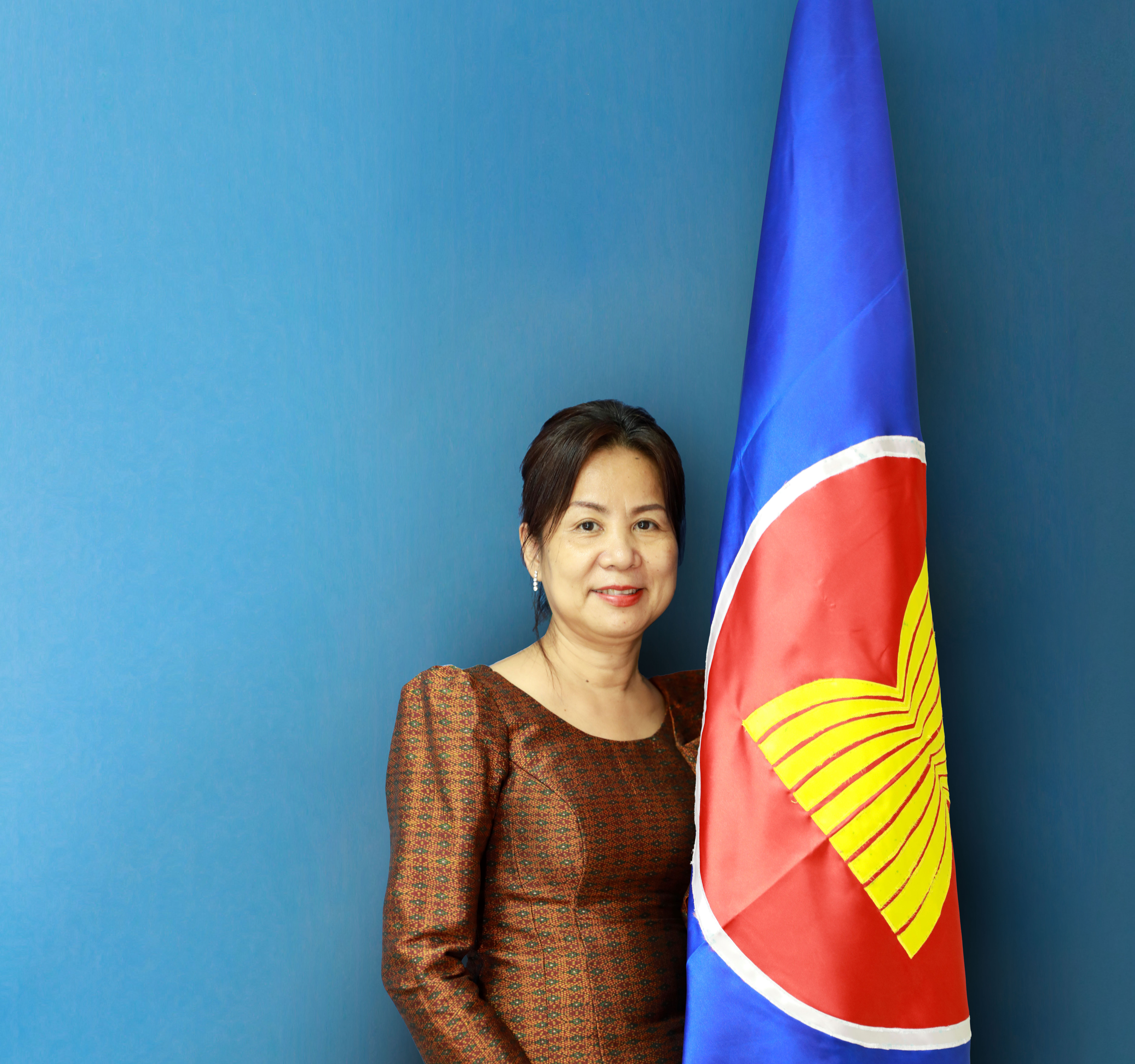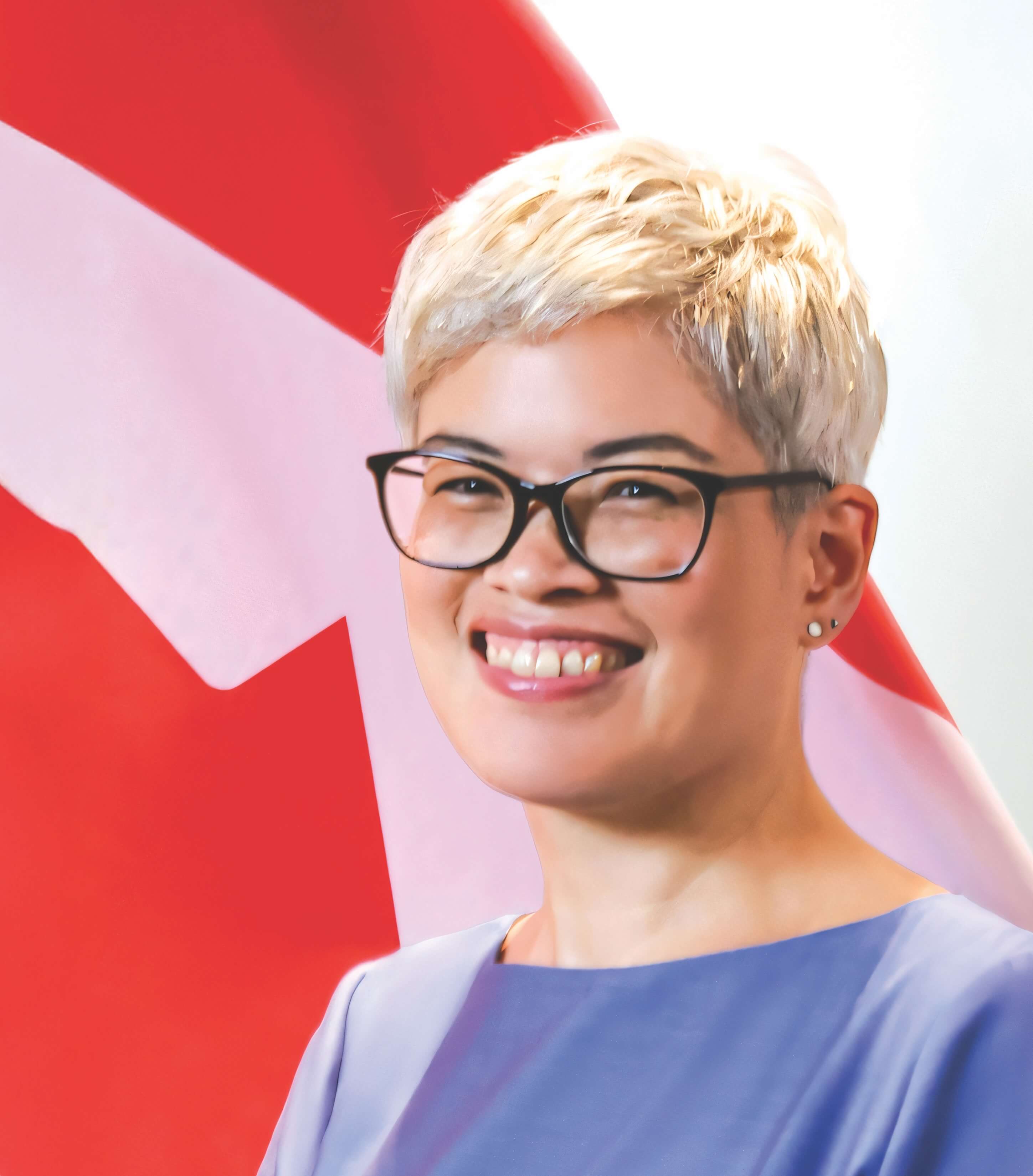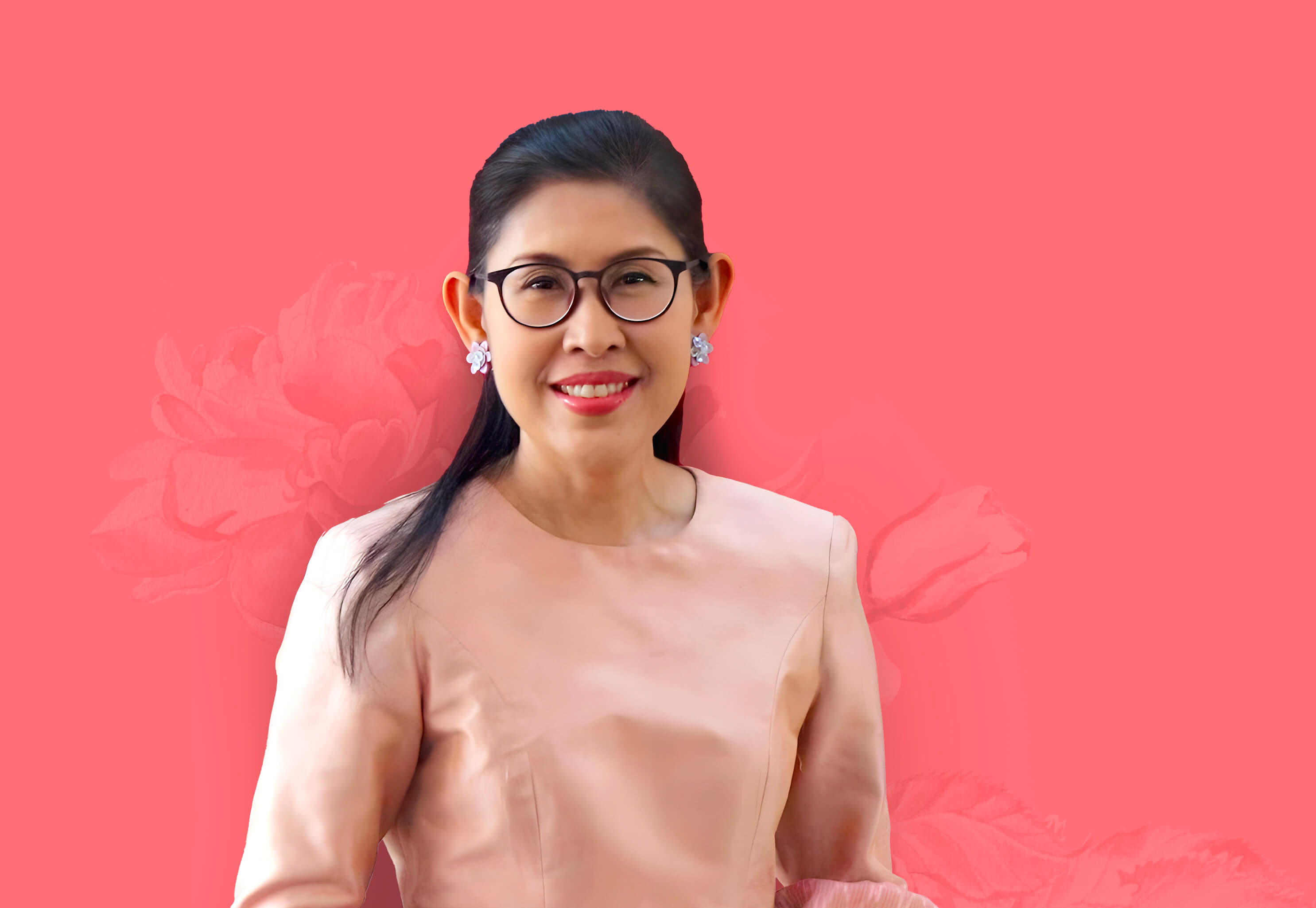


ACWC is a consultative body that supports the work of the ASEAN Ministerial Meeting on Social Welfare and Development. ACWC Chair and Cambodian Ministry of Women’s Affairs Under Secretary Hou Nirmita talks about the role of the Commission in securing the rights of women and children in the region.
What led to the establishment of the ACWC in 2010, and can you explain its mandate, composition, and specific function?
At the 10th ASEAN Summit held in November 2004, the ASEAN Leaders adopted the Vientiane Action Programme 2004-2010 (VAP), which among others, called for the establishment of an ASEAN Commission on the Promotion and Protection of the Rights of Women and Children (ACWC). Significantly, the ASEAN Socio-Cultural Community (ASCC) Blueprint 2009-2015 reiterated the mandate for the establishment of the ACWC. The ACWC was inaugurated on 7 April 2010 in Ha Noi, Viet Nam, on the occasion of the 16th ASEAN Summit. It was established “to promote and protect the rights of women and children to ensure their equitable development in the region”. ACWC, as a consultative ASEAN body, is able to monitor other ASEAN objectives as they relate to the rights of women and children.
The ACWC is a crucial ASEAN regional mechanism because it is specifically mandated to develop policies, programmes, and innovative strategies to promote and protect the rights of women and children. Its creation is in line with the goal to uphold the rights contained in the Convention on the Elimination of Violence Against Women (CEDAW) and the Convention on the Rights of the Child (CRC) through its implementation of the 5-year Work Plan.
Apart from implementing the work plans, the ACWC has been actively engaged in cross-sectoral and inter-pillar cooperation across the ASEAN Community. The areas of cooperation prioritise the elimination of violence against women and children, trafficking-in-persons (TIP), and promoting gender equality and the empowerment of women and girls, among others.
ACWC is composed of representatives
for women’s and children’s rights from governments, civil society organisations, and the academe, as selected by the respective appointing authorities in the ASEAN Member States. The representatives serve on avoluntary and part-time basis. In addition, the ACWC reports to and supports the work of the ASEAN Ministerial Meeting on Social Welfare and Development (AMMSWD).
What mechanisms or approaches does ACWC use to ensure that the rights contained in the Convention on the Rights of the Child and Convention on the Elimination of All Forms of Discrimination Against Women are upheld by the Member States?
Adopting a collaborative approach with the ASEAN Member States and multiple stakeholders, ACWC conducts various training, regional workshops, seminars, and consultative meetings continuously. The training creates opportunities for government officials, civil society organisations, professionals, and other stakeholders to participate, exchange views, and share their knowledge with one another. Furthermore, they strengthen commitments by learning theoretical strategies and implementing them for practical purposes. The research results are used to develop more responsive policy and regional guidelines. These are all aimed to ensure that the rights of women and children are truly provided and guaranteed in real settings.
The ACWC also initiated strong advocacy for mainstreaming women and child rights as an organisational imperative. In so doing, the ACWC reinforced it by developing strong guidelines and tools that make programmes and practices within ASEAN gender-responsive and child-sensitive. A few examples are the guidelines for the frontline responders who safeguard the rights of TIP victims, and the guidelines on non-gender stereotyping in curriculum and textbook writing for higher education level in collaboration with ASEAN Commission on Women and the Senior Officials Meeting for Education.
The approach also covers awareness raising campaigns and efforts to push for stronger protection of the rights of women and children, such as campaigns in support of Elimination of Violence Against Women- Regional Plan of Action, and the Bohol TIP Work Plan that focuses on the prevention of the gender-based workplace exploitation among migrant women.
Attention is now directed towards the deepening and long-term impact of the pandemic on children. Can you tell us about ACWC’s initiatives and partnerships to reverse the devastating impact of COVID-19 on children and young people?
The ACWC is facing a horizon that is fraught with much uncertainty considering that
the world is far different from when the commission was established. The promotion and protection of the rights of women and children have to contend with a world that is becoming smaller and connected but stilldivided and unequal. It is more flawed with the breakdown of societal structures caused by the harmful and deepening effects of the COVID-19 pandemic, with vulnerable groups suffering disproportionately. Technological advances and the burgeoning digital world are also changing the challenges to realising the rights of women and children. And as the ongoing global COVID-19 pandemic has unearthed and even exacerbated threats to the rights of women and children in the ASEAN region, the need to address and remedy the catastrophe is even more urgent.
The COVID-19-related crises have exacerbated existing gender and socioeconomic inequalities, meaning women are at greater risk as frontline workers, family caregivers, and are more likely to face gender-based violence. In addition, a higher number of children are out of school. In 2021, the ACWC worked with the ASEAN Commission on Women to develop the ASEAN Gender Outlook, a pioneering publication that monitored and documented the progress of Sustainable Development Goals through gender statistics. It revealed that the pandemic rolled back some of SDG progress. Under the current ACWC Work Plan, this is research that the Member States can study, such as the linkages between the pandemic and violence against women, especially migrant women workers. There was also a regional conference where the information was shared to help accelerate recovery and build people’s long-term resiliency in planning and coping with future crises.
What are the most pressing issues related to children’s rights and welfare that may have been neglected during the pandemic? What do ASEAN Member States need to do to address these issues?
Among the countless issues that involve children’s rights and welfare nowadays, especially during the pandemic, are the lack of access to education and nutritional needs. During COVID-19 pandemic, schools and other educational institutions were closed. Many children were unfortunately forced to drop out during this time to work and help support their families. Although some schools have begun to reopen, the numbers of returning children are still low. Overall, extreme poverty affects not only their education but their health as well, both physically and mentally. Some children also rely on supplementary feeding programmes in school to receive proper breakfast. This has been disrupted by the pandemic. Without access to school and their dependence on food support, many children were left without proper nutrition. These issues are of course still ongoing.
ASEAN Member States need to strongly address these pressing matters. Access to education should be provided for all children equally, no matter their family income. The children’s only concern at this age should be their education, not earning an income
to support their families. This means making sure their parents or guardians have enough means to provide for them, allowing them to focus on their schooling. We must also ensure that they are eating properly and getting proper nutrition. Some schools have already started providing free breakfast for their students, which should be more common across the countries. Snacks sold in schools should also be closely monitored to make sure our children do not have access to unhealthy food.
Can you share with us some of the successful outcomes of ACWC initiatives? What have been the remaining gaps or challenges in promoting national policies and programs towards the promotion and protection of children’s rights?
There are 18 thematic and 17 regional project areas under the ACWC work plan 2012-
2016. For the 2016-2020 plan, ACWC covers 16 thematic areas of work for up to 48 regional projects. Recently, through various consultation meetings among members and relevant stakeholders, the ACWC Work Plan 2021-2025 was developed. It covers four outcomes and various outputs that are envisioned to contribute to the achievement of the ASCC Blueprint 2025.
The accomplishments that ACWC has successfully completed include:
i. established itself as a highly specialised and credible ASEAN body with expertise in promoting and protecting the rights of women and children;
ii. fulfilled an increasingly significant role in setting the policy agenda of ASEAN on women and children’s rights;
iii. trailblased the path in shedding light on emerging issues;
iv. led pioneering action research that has contributed to evidence-based policy and programme development;
v. built and continues to strengthen capacities;
vi. increased awareness on the necessity of promoting and protecting the rights of women and children by expanding its public outreach;
vii. amplified the voices of women and children by engaging various ASEAN bodies; and
viii. steered development cooperation with ASEAN’s partners towards the promotion and protection of the rights of women and children.
Additionally, ACWC has also officially set the policy agenda of ASEAN on women and children’s rights. The agenda for programme development covers strategies that would alleviate the emerging issues based on strong evidence-based research. The plan also aims to strengthen human resources and their capacities continuously. It aims to increase awareness on these pressing matters and the necessary actions need to be taken.
Women and children should be able to participate and express their real concerns. The goal is to focus on real- life issues rather than the presumptions of what those issues are. Hence, their participation is very critical. Moreover, amplifying the voices of women and children is essential to advance cooperation with ASEAN’s partners.








